Find Help
More Items From Ergsy search
-
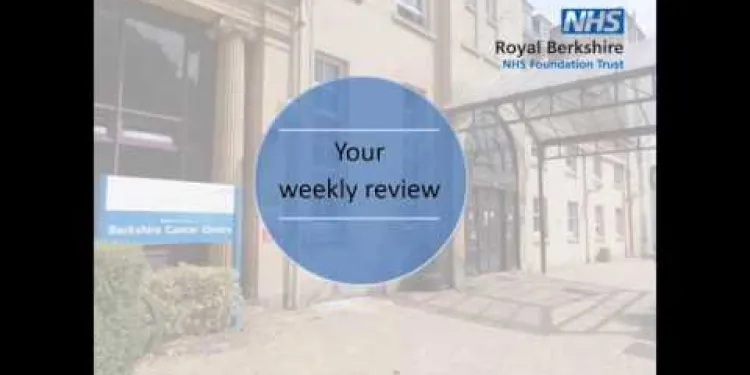
Royal Berkshire NHS Foundation Trust: Radiotherapy for prostate cancer
Relevance: 100%
-
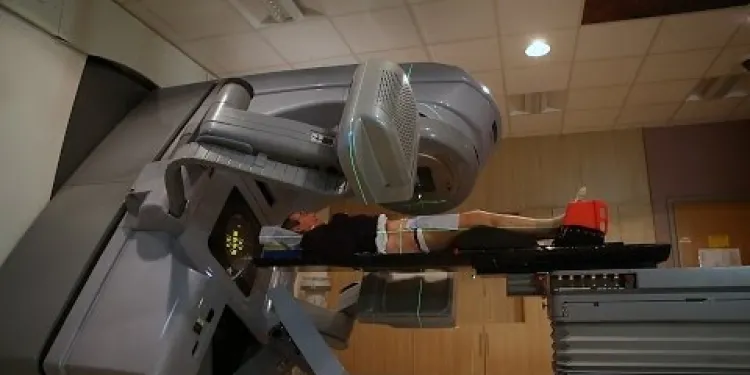
What is it like having Prostate Radiotherapy treatment?
Relevance: 88%
-
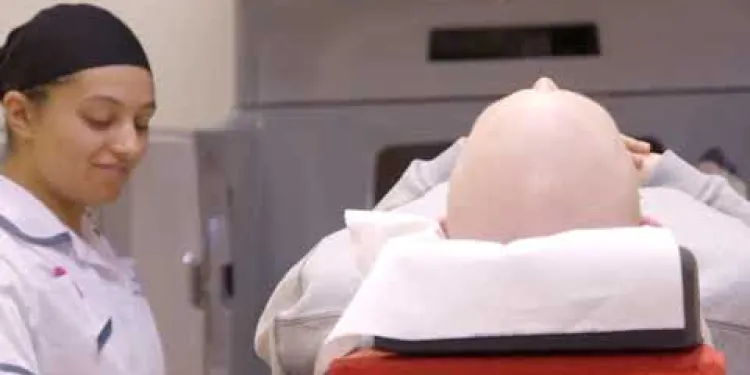
What is Radiotherapy, and its use in treatment for cancers?
Relevance: 81%
-
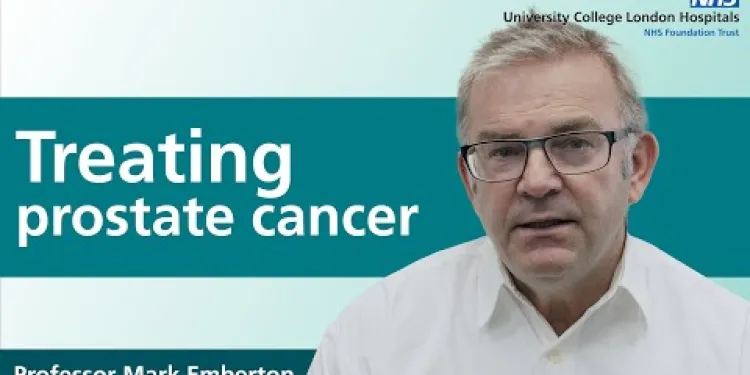
Treating prostate cancer
Relevance: 76%
-

How is prostate cancer treated?
Relevance: 75%
-
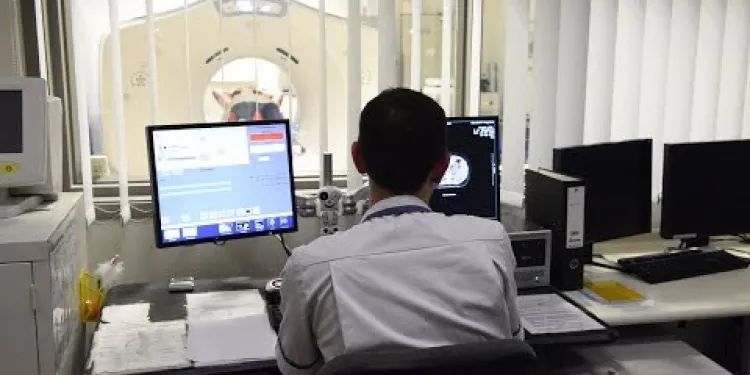
Having radiotherapy for breast cancer - 3 Videos
Relevance: 73%
-
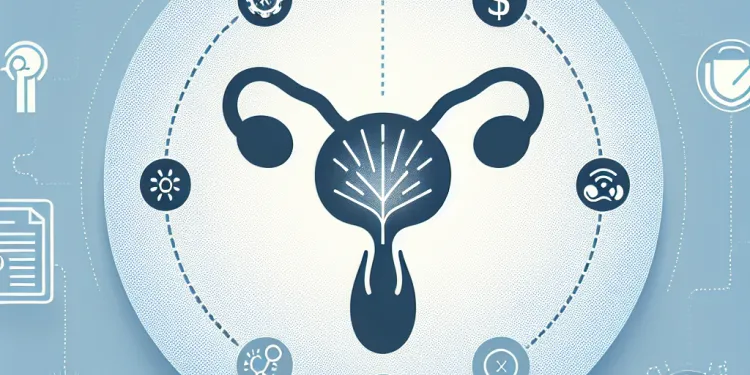
Hormone Therapy for prostate cancer
Relevance: 71%
-
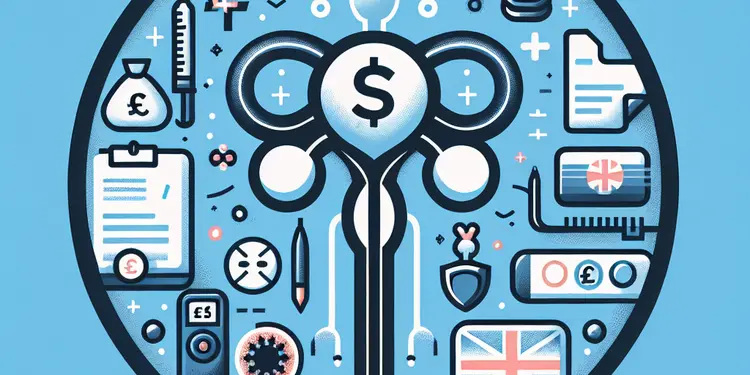
How is advanced prostate cancer treated?
Relevance: 70%
-

Can Abiraterone be used for early-stage prostate cancer?
Relevance: 70%
-
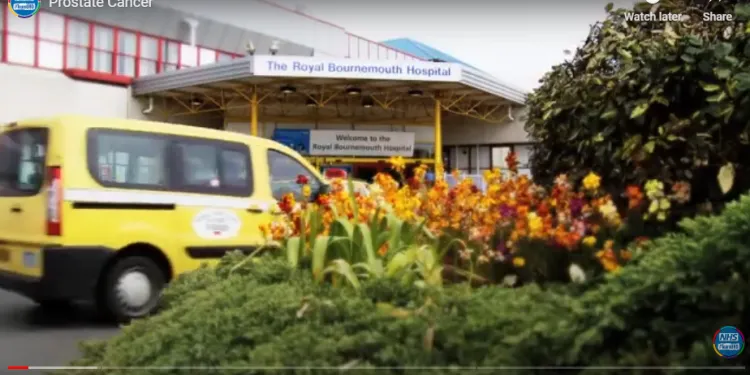
What is Prostate Cancer?
Relevance: 67%
-
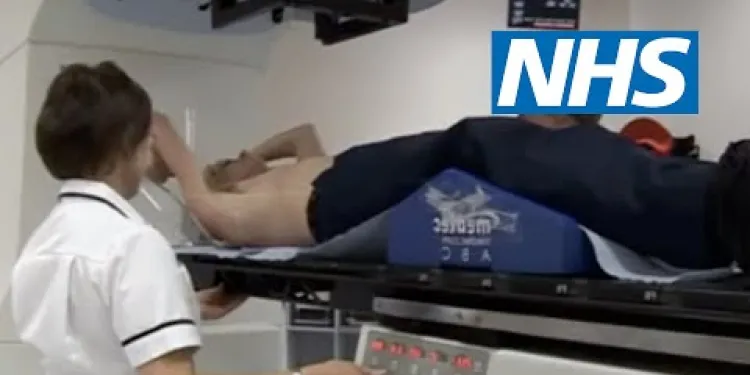
Cancer treatment: what happens during radiotherapy? | NHS
Relevance: 67%
-
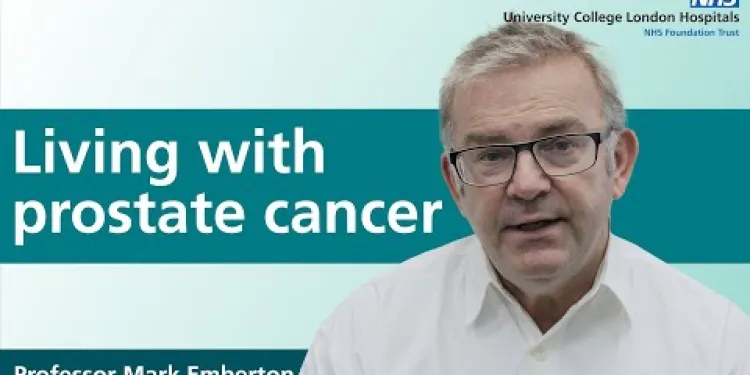
Living with prostate cancer
Relevance: 67%
-

What is the role of immunotherapy in prostate cancer treatment?
Relevance: 67%
-

What is active surveillance in prostate cancer treatment?
Relevance: 66%
-
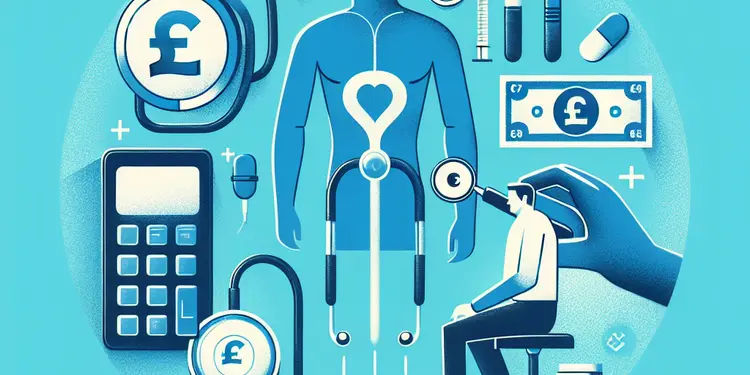
Are there clinical trials available for prostate cancer treatment?
Relevance: 64%
-

Is BPH the same as prostate cancer?
Relevance: 64%
-
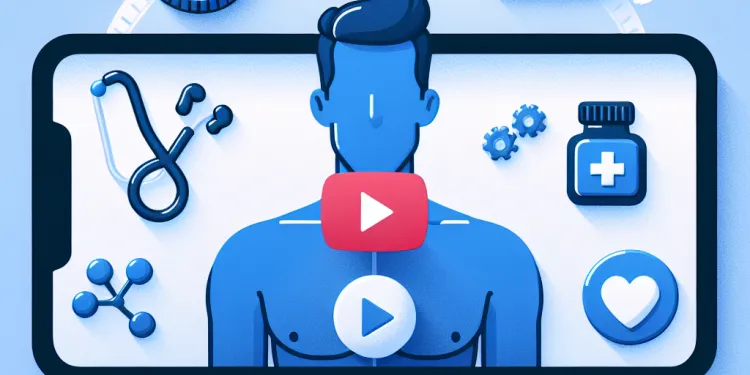
Am I more at risk of prostate cancer?
Relevance: 64%
-
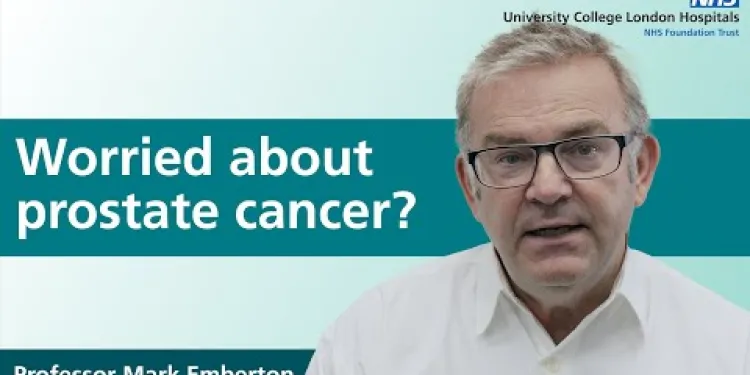
Prostate cancer diagnosis and tests
Relevance: 64%
-
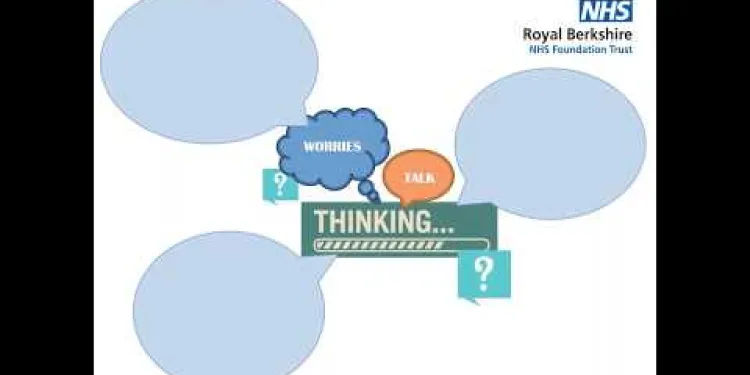
Royal Berkshire NHS Foundation Trust: Radiotherapy for head and neck cancers
Relevance: 64%
-
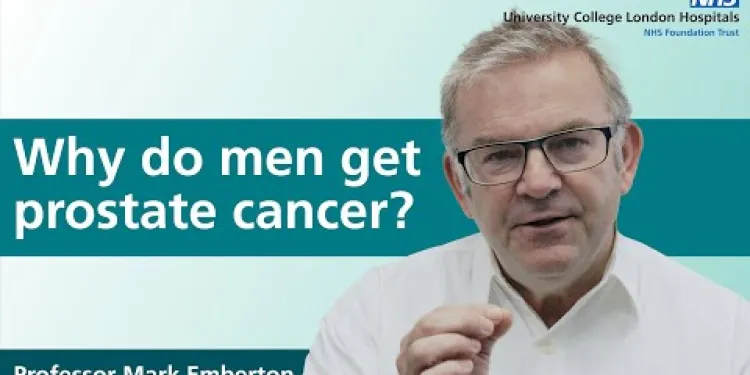
Why do men get prostate cancer?
Relevance: 62%
-

Where can I find online resources for prostate cancer treatments on the NHS?
Relevance: 62%
-
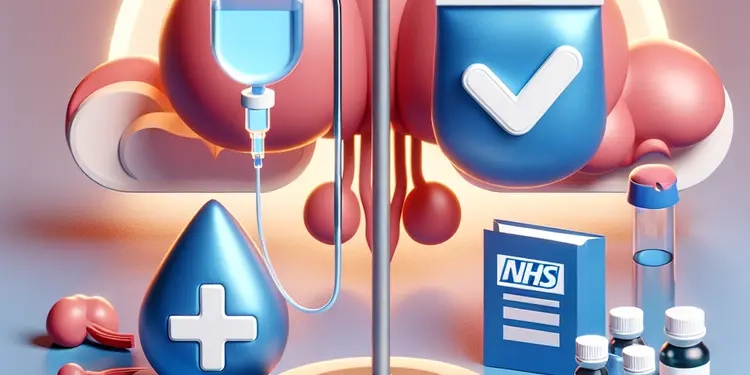
When is chemotherapy used for prostate cancer?
Relevance: 62%
-
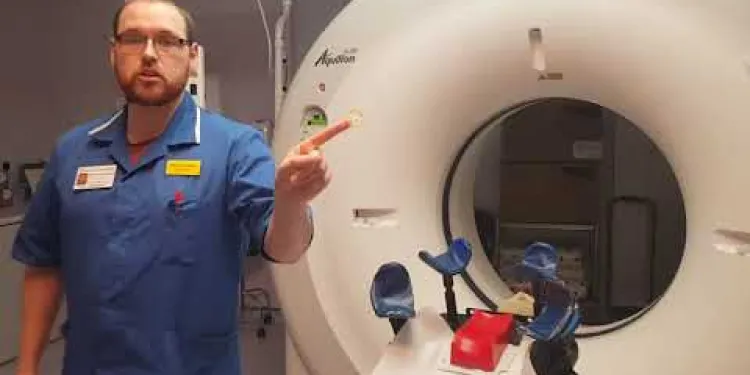
Radiotherapy CT scanner
Relevance: 61%
-
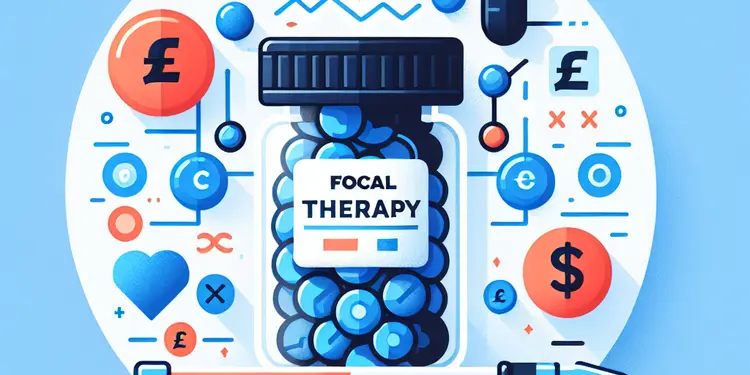
Is focal therapy an option for prostate cancer?
Relevance: 61%
-

Does the NHS offer an online hospital for prostate cancer?
Relevance: 61%
-

Does Abiraterone cure prostate cancer?
Relevance: 60%
-
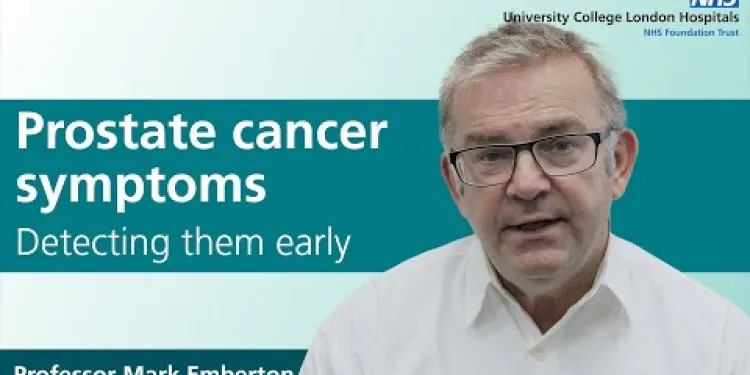
Prostate cancer symptoms - detecting them early
Relevance: 60%
-

Can prostate cancer recur after treatment?
Relevance: 59%
-

Does BPH increase the risk of prostate cancer?
Relevance: 59%
-

Breakthrough in Cancer Treatment Offers Hope for Prostate Cancer Patients
Relevance: 59%
-

Is there an NHS app for managing prostate cancer care?
Relevance: 59%
-

How does surgery treat prostate cancer?
Relevance: 59%
-

What are PSA levels? - Prostate Cancer
Relevance: 58%
-
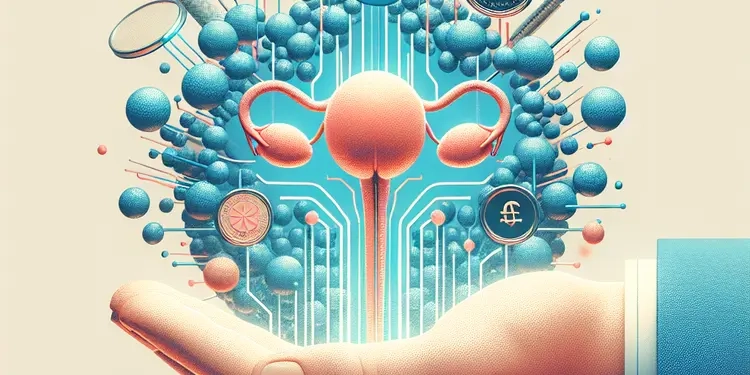
Can prostate cancer be treated with targeted therapy?
Relevance: 58%
-
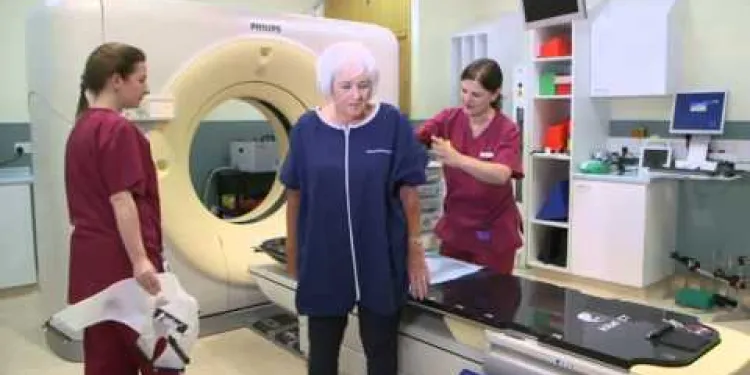
Radiotherapy to the Head and Neck: A Guide for patients and their carers
Relevance: 58%
-
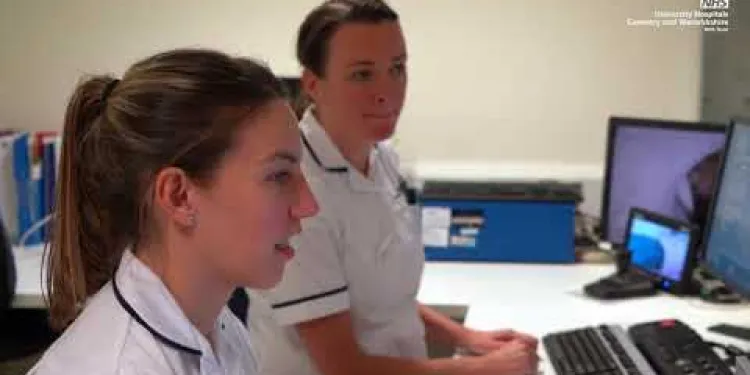
Radiotherapy Services at University Hospital
Relevance: 58%
-

Are there online support services for prostate cancer patients on the NHS?
Relevance: 58%
-

What is the purpose of a bone scan in prostate cancer treatment?
Relevance: 57%
-

Are there specific vegetables that are more effective against prostate cancer?
Relevance: 57%
-

How does cryotherapy work in treating prostate cancer?
Relevance: 57%
Can prostate cancer be treated with radiotherpay in the UK?
Yes, prostate cancer can be treated with radiotherapy in the UK. Radiotherapy is one of the main treatment options for prostate cancer and may be used as a primary treatment for localized prostate cancer or as part of a combined treatment approach for locally advanced or metastatic disease.
There are two main types of radiotherapy used to treat prostate cancer:
- External Beam Radiotherapy (EBRT): This involves delivering radiation to the prostate gland from outside the body using a machine called a linear accelerator. EBRT is typically delivered over several weeks, with daily treatment sessions lasting a few minutes each.
- Brachytherapy: Also known as internal radiotherapy, brachytherapy involves placing radioactive seeds or pellets directly into the prostate gland. These radioactive sources emit radiation over time, delivering a high dose of radiation to the prostate while minimizing exposure to surrounding healthy tissues.
In addition to these primary forms of radiotherapy, other advanced techniques such as intensity-modulated radiation therapy (IMRT), image-guided radiation therapy (IGRT), and stereotactic body radiation therapy (SBRT) may also be used to deliver precise and targeted radiation to the prostate while minimizing side effects.
Radiotherapy can be used alone as a curative treatment for localized prostate cancer or in combination with other treatments such as hormone therapy, surgery, or chemotherapy for more advanced or aggressive disease. The choice of treatment approach depends on various factors, including the stage and grade of the cancer, the patient's overall health and preferences, and the expertise of the treating healthcare team.
In the UK, radiotherapy for prostate cancer is available through the National Health Service (NHS) and is provided at specialized cancer treatment centers by experienced oncologists and radiographers. Patients undergoing radiotherapy for prostate cancer will typically receive comprehensive care, including pre-treatment evaluation, treatment planning, radiation delivery, and follow-up monitoring to assess treatment response and manage any side effects.
Royal Berkshire NHS Foundation Trust: Radiotherapy for Prostate Cancer
Introduction to Radiotherapy
Radiotherapy is a widely used treatment for prostate cancer, leveraging high-energy rays to target and destroy cancer cells. At the Royal Berkshire NHS Foundation Trust, state-of-the-art technology and experienced oncology teams provide tailored radiotherapy treatments to enhance patient outcomes and quality of life.Types of Radiotherapy
There are two main types of radiotherapy available for prostate cancer patients: External Beam Radiotherapy (EBRT) and Brachytherapy. EBRT involves targeting the prostate gland from outside the body, while Brachytherapy involves placing radioactive seeds directly into the prostate. Both methods aim to maximize cancer cell destruction while minimizing damage to surrounding tissues.Treatment Planning
Before starting radiotherapy, patients undergo a detailed planning process, including imaging scans like MRI or CT. This helps the oncology team at Royal Berkshire NHS Foundation Trust to map out the precise area to be targeted, ensuring radiation is delivered accurately. Customized treatment plans are created for each patient, taking into account the cancer stage and the patient’s overall health.Procedure and Sessions
Typically, radiotherapy for prostate cancer requires multiple sessions over several weeks. During each session, patients lie on a treatment couch while the linear accelerator directs radiation at the prostate. Each session lasts about 15-20 minutes, and regular monitoring ensures that the treatment is proceeding as planned.Side Effects
While radiotherapy can be highly effective, it may also carry side effects, which can vary in severity. Common side effects include fatigue, urinary issues, and bowel problems. Royal Berkshire NHS Foundation Trust provides comprehensive support to manage and mitigate these side effects, including access to specialist nurses and advice on lifestyle adjustments.Post-Treatment Care
After completing radiotherapy, patients will have follow-up appointments to monitor their progress. Regular PSA tests are conducted to check the effectiveness of the treatment. The supportive care team is always available to address any ongoing concerns or health issues, ensuring continuous patient well-being.Support Services
Royal Berkshire NHS Foundation Trust offers a range of support services for prostate cancer patients undergoing radiotherapy. This includes counseling, nutritional advice, and support groups. These resources are designed to assist patients and their families in coping with the emotional and physical challenges of cancer treatment.Conclusion
Radiotherapy at the Royal Berkshire NHS Foundation Trust provides a highly effective treatment option for prostate cancer. With advanced technology, a dedicated oncology team, and extensive support services, patients receive comprehensive care tailored to their individual needs. For more information and personalized advice, patients are encouraged to consult with their healthcare team at the Trust.Can prostate cancer be treated with radiotherapy in the UK?
Yes, in the UK, prostate cancer can be treated with radiotherapy. Radiotherapy is a common treatment for prostate cancer. It can be used alone or with other treatments to help fight the cancer.
There are two main types of radiotherapy for prostate cancer:
- External Beam Radiotherapy (EBRT): This uses a machine to send radiation to the prostate from outside the body. Patients usually visit the hospital every weekday for several weeks, and each session takes just a few minutes.
- Brachytherapy: This is also called internal radiotherapy. It involves putting tiny radioactive seeds directly in the prostate. These seeds give off radiation, targeting the cancer and protecting nearby healthy tissue.
Other advanced treatments like IMRT, IGRT, and SBRT can also be used. These methods make sure the radiation hits the cancer accurately, reducing side effects.
Radiotherapy can be used on its own to cure early-stage prostate cancer. For more serious cases, it might be combined with hormone therapy, surgery, or chemotherapy. Doctors will choose the best treatment based on cancer stage, the patient’s health, and preferences.
In the UK, you can get radiotherapy for prostate cancer through the NHS. Specialized doctors and staff provide this care. They will evaluate you before treatment starts, plan your treatment, deliver the radiation, and check on you afterwards. They aim to see how well the treatment works and help with any side effects.
Royal Berkshire NHS Foundation Trust: Radiotherapy for Prostate Cancer
What is Radiotherapy?
Radiotherapy is a treatment for prostate cancer. It uses strong rays to kill cancer cells. At the Royal Berkshire NHS Foundation Trust, doctors use the best machines and have lots of experience. This helps make patients feel better and helps them have a good life.Types of Radiotherapy
There are two main types of radiotherapy for prostate cancer: 1. **External Beam Radiotherapy (EBRT):** This targets the prostate from outside the body. 2. **Brachytherapy:** This puts small radioactive seeds inside the prostate. Both types try hard to kill cancer cells while keeping the rest of the body safe.Planning the Treatment
Before starting radiotherapy, doctors make a careful plan using special body scans like MRI or CT. This helps to know exactly where to aim the treatment. Each patient gets a special plan made just for them, based on how bad the cancer is and their health.How the Treatment Works
Patients need to come for radiotherapy many times over a few weeks. For each session, they lie on a bed and a machine sends radiation to the prostate. Each session takes about 15 to 20 minutes. Doctors check to make sure everything goes well.Possible Side Effects
Radiotherapy can have side effects. Some common ones are feeling very tired, having trouble going to the toilet, or tummy problems. The hospital helps patients feel better with nurses and advice on how to live well during treatment.After the Treatment
When radiotherapy is finished, patients go to check-ups to see how they are doing. Doctors do PSA tests to see if the treatment worked. The hospital team is always ready to help with any worries or health problems.Support for Patients
The Royal Berkshire NHS Foundation Trust gives lots of help to patients and their families. This can be talking to someone, getting advice on eating, or joining support groups. These help patients feel stronger and less worried during treatment.In Summary
Radiotherapy at the Royal Berkshire NHS Foundation Trust is a strong way to treat prostate cancer. With great technology and a caring team, patients get the best care. If you need more help or information, talk to your healthcare team at the Trust.Frequently Asked Questions
What is radiotherapy for prostate cancer?
Radiotherapy for prostate cancer is a treatment where high-energy radiation is used to target and kill cancer cells in the prostate gland.
How does radiotherapy work?
Radiotherapy works by damaging the DNA of cancer cells, which prevents them from growing and dividing. Over time, the damaged cancer cells die off.
What types of radiotherapy are available for prostate cancer?
The main types of radiotherapy for prostate cancer include external beam radiotherapy (EBRT) and brachytherapy (internal radiotherapy).
How long does a radiotherapy course last?
A course of radiotherapy can last several weeks, with treatments typically given five days a week.
What are the side effects of radiotherapy for prostate cancer?
Common side effects include fatigue, skin irritation, urinary problems, bowel issues, and erectile dysfunction. Not everyone will experience all side effects, and they can vary in severity.
Is radiotherapy painful?
The radiotherapy treatment itself is not painful, but some side effects due to the treatment might cause discomfort.
Can I continue working during radiotherapy?
Many people continue to work during radiotherapy, but it depends on how you feel and the side effects you experience. It’s important to listen to your body and rest when needed.
Will radiotherapy cure my prostate cancer?
Radiotherapy can be very effective at treating and potentially curing prostate cancer. However, the success of the treatment can depend on various factors, including the stage and aggressiveness of the cancer.
Are there any long-term effects of radiotherapy?
Some men may experience long-term side effects such as changes in bowel or urinary habits and erectile dysfunction. However, many side effects improve over time.
How is my radiotherapy treatment planned?
A detailed planning process, including imaging scans like CT or MRI, helps to accurately target the prostate and minimise exposure to surrounding tissues.
Can radiotherapy be combined with other treatments?
Yes, radiotherapy is often combined with hormone therapy to improve treatment effectiveness. Your oncologist will discuss the best treatment plan for you.
Do I need to follow a special diet during radiotherapy?
There’s no specific diet required, but maintaining a healthy diet can help your body cope with treatment. Your healthcare team can provide dietary advice tailored to your needs.
How will radiotherapy affect my daily life?
Radiotherapy may cause fatigue and other side effects that can impact your daily routine. It’s important to arrange support and allow extra time for rest and recovery.
Will I lose my hair during radiotherapy for prostate cancer?
Hair loss is not a common side effect of radiotherapy for prostate cancer, as the treatment targets the prostate gland and not areas of hair growth.
Who can I talk to if I have more questions about my treatment?
You can talk to your oncologist, radiotherapist, or nurse specialist for more information and support regarding your treatment. The Royal Berkshire NHS Foundation Trust also has support services available.
What is radiotherapy for prostate cancer?
Radiotherapy is a treatment for prostate cancer.
It uses high-energy rays to kill cancer cells.
This treatment helps to stop cancer from growing.
Here are some helpful tips:
- Use pictures or videos to understand better.
- Ask a doctor or nurse if you have questions.
- Use apps or devices that read text out loud.
Radiotherapy is a way to treat prostate cancer. It uses strong beams of energy to find and kill cancer cells in the prostate.
How does radiotherapy work?
Radiotherapy is a treatment for cancer. It uses strong rays to kill cancer cells. These rays are like strong X-rays. They go into the body and stop cancer from growing.
Here is how it works:
- The doctor will plan your treatment.
- You will go to a special hospital room.
- You will lie still on a table.
- A machine will give you the strong rays.
- You will not feel anything during the treatment.
Here are some tips to help:
- Ask your doctor to explain each step.
- Take a deep breath to feel calm.
- Bring a friend or family member for support.
- Ask for pictures or videos about radiotherapy.
Radiotherapy helps treat cancer. It works by hurting the part inside cancer cells called DNA. This stops them from growing and making more cancer cells. After a while, the cancer cells die.
What kinds of radiotherapy can treat prostate cancer?
Radiotherapy is a treatment for cancer. It uses special rays to kill cancer cells.
Here are some types that help prostate cancer:
- External Beam Radiotherapy (EBRT): A big machine points rays at the cancer from outside the body.
- Brachytherapy: Tiny seeds with radiation are put inside the body near the cancer.
- Proton Therapy: Uses proton rays instead of regular rays. It is gentle on healthy body parts.
If you have prostate cancer, doctors can talk to you about the best kind of radiotherapy.
Helpful tips:
- Ask questions if you do not understand.
- Use pictures or videos to learn more.
- Bring a friend or family member to your doctor appointments.
There are two main ways to use radiotherapy to treat prostate cancer. One way is called external beam radiotherapy (EBRT). The other way is brachytherapy, which is a kind of internal radiotherapy.
How long does radiotherapy take?
Radiotherapy is a treatment that uses strong rays to help make people better when they are sick. Usually, you need to go to the hospital for this treatment. Most people go for a few weeks.
It can be different for everyone. Sometimes it only takes a few days, and other times it can take up to 7 weeks. The doctor will tell you how long you need it.
It can help to use a calendar or planner to keep track of your appointments. You can also ask someone you trust to remind you when it's time to go.
Radiotherapy is a type of medicine to help with cancer. It can take a few weeks to finish. You usually go to get treatment five days a week.
What can happen to your body after having radiotherapy for prostate cancer?
Sometimes, when you have radiotherapy to treat prostate cancer, your body might feel different. These changes are called side effects. Let's learn about them together and how to feel better!
Here are some common things that might happen:
- Feeling tired: You might feel more sleepy and need extra rest.
- Skin changes: The area where you had treatment might look red or sore. Be gentle with your skin.
- Going to the bathroom: You might need to pee more often, or it might sting. Drink lots of water to help.
- Feeling sick: Sometimes, your tummy might hurt or you might feel like you want to vomit.
If you feel any of these things, tell a grown-up or your doctor. They can help you feel better.
Here is how you can help yourself:
- Rest when you feel tired.
- Always be kind to your skin; don’t scratch it.
- Drink plenty of water every day.
- Eat small meals if your tummy feels upset.
Tools like picture books or talking to someone can help you understand more. You can also ask someone to explain things to you in a way that is easy to understand.
Some common problems you might have are feeling very tired, having sore skin, trouble peeing, tummy troubles, and problems with getting an erection. Not everyone will have these problems, and they can be different for each person.
Does radiotherapy hurt?
Getting radiotherapy does not hurt, but it might cause some uncomfortable feelings later on.
Can I keep working while having radiotherapy?
Yes, many people keep their jobs during radiotherapy. Here are some tips to help you:
- Talk to your doctor and your boss about your treatment schedule.
- Take breaks and rest when you feel tired.
- Check if you can work part-time if you need more rest.
Ask for help if you need it from family or friends. It's okay to take it easy.
Lots of people keep working while getting radiotherapy. But it depends on how you feel and any side effects. Listen to your body. Rest when you need to.
Can radiotherapy cure my prostate cancer?
Radiotherapy is a treatment that uses strong rays to kill cancer cells. It can help with prostate cancer. But it is important to talk to your doctor to see if it is the right choice for you.
Here are some tips to help you understand:
- Talk to your doctor: They can explain what radiotherapy does and if it can help you.
- Ask questions: Write down any questions you have and ask your doctor to explain them.
- Get support: Ask a friend or family member to go with you to your doctor visits.
Radiotherapy is a way to treat prostate cancer. It can help make cancer go away. How well it works depends on different things. It matters how big the cancer is and how fast it is growing.
If you have trouble reading, you can use tools to help. Some people find it helpful to read out loud. You can also use a finger to follow along or ask someone to read with you.
Does radiotherapy have long-term effects?
Radiotherapy uses strong X-rays to treat cancer.
Some people might have side effects that happen later:
- Skin might change color.
- Feel tired more often.
- Hair may not grow back in the treatment area.
Support tools:
- Ask a doctor if you have questions.
- Use apps that help people with reading.
- Talk to a support group or a friend.
Some men might have long-lasting side effects, like needing to pee or poop differently and having trouble getting an erection. But, many side effects get better as time goes by.
How do doctors plan my radiotherapy treatment?
Doctors plan how to give you radiotherapy. They use special machines and pictures of your body. This helps them know where to aim the radiotherapy.
Here is how they do it:
- They take pictures of inside your body. This shows them where the cancer is.
- They use these pictures to plan your treatment. This helps them target the cancer and not hurt healthy parts.
- They make a schedule for your treatment days. This tells you when to go to the hospital.
If you want extra help, ask someone you trust to come with you. They can help you understand what the doctors say.
Before the treatment, doctors do a lot of planning. They use special pictures like CT or MRI scans to see inside the body. This helps them aim at the prostate very carefully and avoid other parts around it.
Can you use radiotherapy with other treatments?
Yes, you can use radiotherapy with other treatments. Doctors might use it with surgery or medicine to help fight illness.
For extra help, you can use pictures or videos to understand better. You can also ask someone to explain it to you.
Yes, sometimes you get radiotherapy and hormone treatment together. This can help the medicine work better. Your cancer doctor will talk to you about the best treatment for you.
Should I eat special foods while having radiotherapy?
You don’t have to eat special foods, but eating healthy can help you feel better during treatment. Your doctors and nurses can help you with food advice just for you.
What will happen to me with radiotherapy?
Radiotherapy is when doctors use special rays to treat sickness. It can make you feel very tired and might cause other changes to how you feel every day.
It’s good to ask for help and take extra breaks to rest and get better.
Will I lose my hair during radiotherapy for prostate cancer?
Some people worry about losing hair during cancer treatment.
If you have radiotherapy for prostate cancer, it may not make your head hair fall out.
But you might lose some body hair where the treatment happens. This is normal.
If you are worried or have questions, talk to your doctor. They can give you advice and help.
Using a soft brush or a gentle shampoo can help care for your hair.
You can also ask someone you trust to help if you need it.
When you get radiotherapy to treat prostate cancer, it usually doesn't make your hair fall out. This is because the treatment is aimed at the prostate gland, which is not where hair grows.
Who can I talk to if I have more questions about my treatment?
If you have questions about your treatment, you can talk to your doctor or nurse. They are there to help you. You can also ask a friend or family member to help you understand.
It might help to write down your questions. You can also use pictures to explain what you want to know. If it's hard to listen, you can ask for information in writing.
You can talk to your cancer doctor, radiation doctor, or nurse for more help about your treatment. The Royal Berkshire NHS Foundation Trust can also help you with support services.
Useful Links
Have you found an error, or do you have a link or some information you would like to share? Please let us know using the form below.
-->
This website offers general information and is not a substitute for professional advice.
Always seek guidance from qualified professionals.
If you have any medical concerns or need urgent help, contact a healthcare professional or emergency services immediately.
Some of this content was generated with AI assistance. We’ve done our best to keep it accurate, helpful, and human-friendly.
- Ergsy carfully checks the information in the videos we provide here.
- Videos shown by Youtube after a video has completed, have NOT been reviewed by ERGSY.
- To view, click the arrow in centre of video.
- Most of the videos you find here will have subtitles and/or closed captions available.
- You may need to turn these on, and choose your preferred language.
- Go to the video you'd like to watch.
- If closed captions (CC) are available, settings will be visible on the bottom right of the video player.
- To turn on Captions, click settings .
- To turn off Captions, click settings again.
More Items From Ergsy search
-

Royal Berkshire NHS Foundation Trust: Radiotherapy for prostate cancer
Relevance: 100%
-

What is it like having Prostate Radiotherapy treatment?
Relevance: 88%
-

What is Radiotherapy, and its use in treatment for cancers?
Relevance: 81%
-

Treating prostate cancer
Relevance: 76%
-

How is prostate cancer treated?
Relevance: 75%
-

Having radiotherapy for breast cancer - 3 Videos
Relevance: 73%
-

Hormone Therapy for prostate cancer
Relevance: 71%
-

How is advanced prostate cancer treated?
Relevance: 70%
-

Can Abiraterone be used for early-stage prostate cancer?
Relevance: 70%
-

What is Prostate Cancer?
Relevance: 67%
-

Cancer treatment: what happens during radiotherapy? | NHS
Relevance: 67%
-

Living with prostate cancer
Relevance: 67%
-

What is the role of immunotherapy in prostate cancer treatment?
Relevance: 67%
-

What is active surveillance in prostate cancer treatment?
Relevance: 66%
-

Are there clinical trials available for prostate cancer treatment?
Relevance: 64%
-

Is BPH the same as prostate cancer?
Relevance: 64%
-

Am I more at risk of prostate cancer?
Relevance: 64%
-

Prostate cancer diagnosis and tests
Relevance: 64%
-

Royal Berkshire NHS Foundation Trust: Radiotherapy for head and neck cancers
Relevance: 64%
-

Why do men get prostate cancer?
Relevance: 62%
-

Where can I find online resources for prostate cancer treatments on the NHS?
Relevance: 62%
-

When is chemotherapy used for prostate cancer?
Relevance: 62%
-

Radiotherapy CT scanner
Relevance: 61%
-

Is focal therapy an option for prostate cancer?
Relevance: 61%
-

Does the NHS offer an online hospital for prostate cancer?
Relevance: 61%
-

Does Abiraterone cure prostate cancer?
Relevance: 60%
-

Prostate cancer symptoms - detecting them early
Relevance: 60%
-

Can prostate cancer recur after treatment?
Relevance: 59%
-

Does BPH increase the risk of prostate cancer?
Relevance: 59%
-

Breakthrough in Cancer Treatment Offers Hope for Prostate Cancer Patients
Relevance: 59%
-

Is there an NHS app for managing prostate cancer care?
Relevance: 59%
-

How does surgery treat prostate cancer?
Relevance: 59%
-

What are PSA levels? - Prostate Cancer
Relevance: 58%
-

Can prostate cancer be treated with targeted therapy?
Relevance: 58%
-

Radiotherapy to the Head and Neck: A Guide for patients and their carers
Relevance: 58%
-

Radiotherapy Services at University Hospital
Relevance: 58%
-

Are there online support services for prostate cancer patients on the NHS?
Relevance: 58%
-

What is the purpose of a bone scan in prostate cancer treatment?
Relevance: 57%
-

Are there specific vegetables that are more effective against prostate cancer?
Relevance: 57%
-

How does cryotherapy work in treating prostate cancer?
Relevance: 57%


